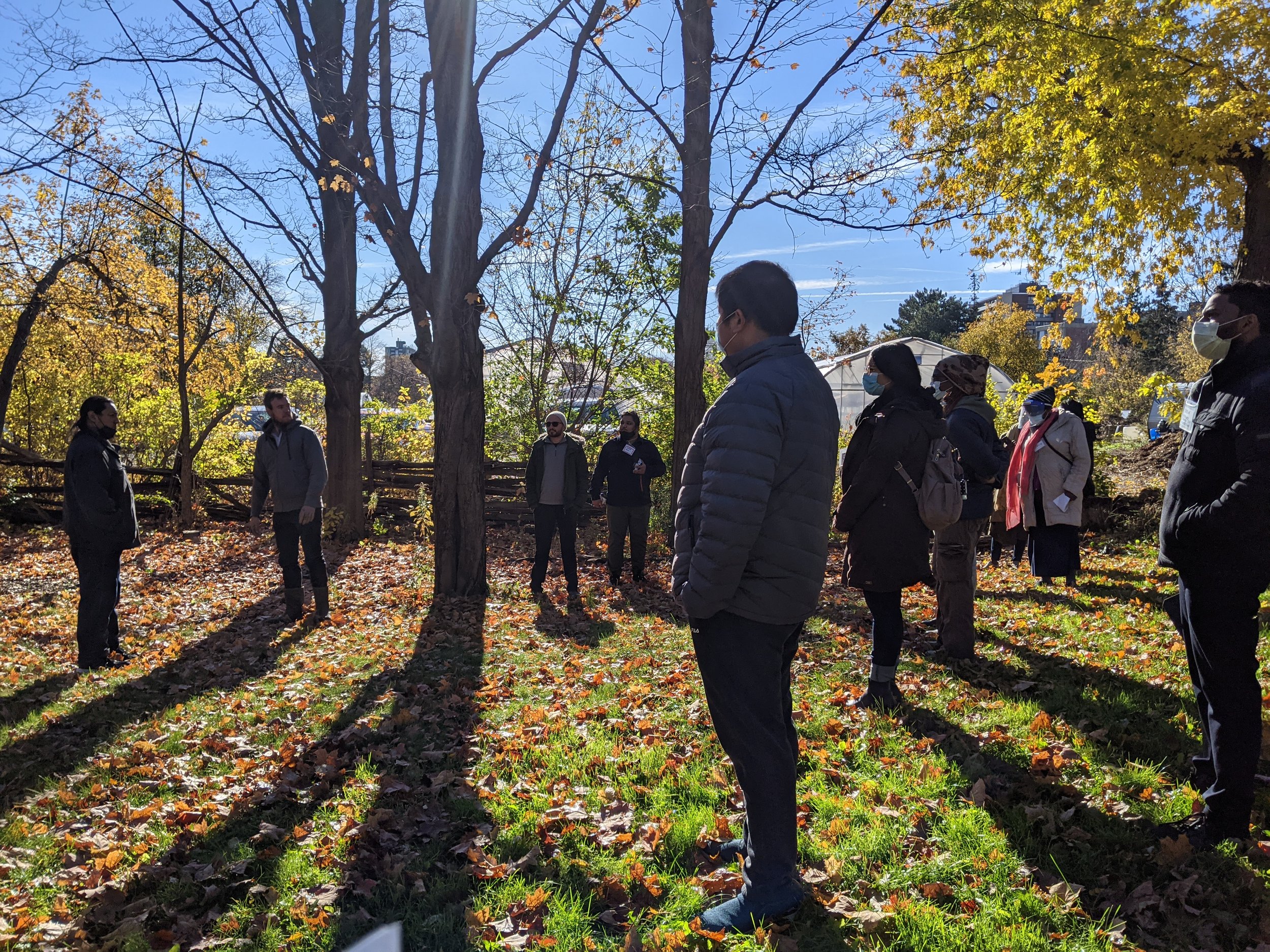Fostering cultural awareness and humility in health care is an essential part of offering food that provides both nutrition and comfort, yet many in health care do not have the opportunity to deepen their cultural awareness. This manifests in many ways, including in the health disparities experienced by Indigenous communities – what is called the Indigenous health gap.
With support from the Frontline Fund, each of the seven Anchor Cohort teams across the country received $7000 land-based learning grants. These grants allowed the teams of health and community leaders to build relationships with Indigenous communities in their area, recognize the role of health care in reconciliation, and actively work towards addressing the Indigenous health gap, which was especially evident after the onset of the COVID-19 pandemic.
Over the summer and fall of 2021, teams undertook a variety of both in-person and online learning experiences, according to what was possible with COVID-19 restrictions (click here for photos).
The land-based learning experiences included:
What is land-based learning?
Land-based learning is a technique that centers Indigenous perspectives and knowledge in building cultural awareness, respect, and humility. This method recognizes the physical environment as both a teacher and a backdrop for experiential learning, playing a key part in reconciliation and decolonization (UNESCO, 2021).
LONDON: Members from St. Joseph's Health Care London & ReForest London worked with the organization Biigajiiskaan Indigenous Pathway of Mental Wellness, to organize a Land and Food Fair. This outdoor event invited over 150 health care staff to join their sustainability initiatives, in addition to providing an opportunity to learn from an Indigenous knowledge keeper and to sample traditional foods.
MONTRÉAL: Leaders from the health care authority CIUSSS du Centre-Sud-de-l'Île-de- Montréal and several community organizations came together both in person and online, to learn from Indigenous leaders, chefs, elders, and others, on the role that health care can play in reconciliation.
NORTHERN ONTARIO: Already embedded in Indigenous communities in their area, the Northern Ontario team used this opportunity to strengthen Indigenous food sovereignty work across their community of practice, which covers seven health units, 103 First Nations, and hundreds of other partnerships including the local public health unit.
SASKATCHEWAN: The Saskatchewan Health Authority, local non-profit CHEP Good Food, and the University of Saskatchewan came together in person over 5 days to learn from Indigenous leaders and participate in traditional activities, such as teepee building and ethnobotany.
TORONTO: Led by professionals from Black Creek Community Farm and the Black Creek Community Health Centre, the team collaborated with Edge of the Bush, a land-based teaching organization, as well as the ENAGB Indigenous Youth Agency, to learn from elders and knowledge keepers while sharing a feast and building a traditional wigwam.
VANCOUVER: Participants from UBC Planetary Healthcare Lab, the Vancouver General Hospital, and Vancouver Coastal Health Public Health and Aboriginal Health worked with Talaysay Tours to look at the history and biodiversity of Stanley Park, ultimately laying the ground for a conversation around how health, culture, and land are connected.
LABRADOR: Leaders from Labrador-Grenfell Health and the organization Food First NL learned from knowledge keepers in Labrador and Nunatukavut while walking the snowy landscape and participating in activities such as creating sealskin crafts, and learning about Indigenous food traditions such rabbit snaring.
Altogether, hundreds of people were equipped and inspired over a rich diversity of experiential learning. Learn more in the report below.
As part of the Toronto team’s land-based learning, listen to Memengwaanh Bell, Gerard Boudreau and Dr. Hopi Martin from Early ON Child and Family Centre share how partnering with Black Creek Community Farm to build a Wigwam (house) along the Humber River created a space for children to gather and encouraged building a connection to Mother Earth.

